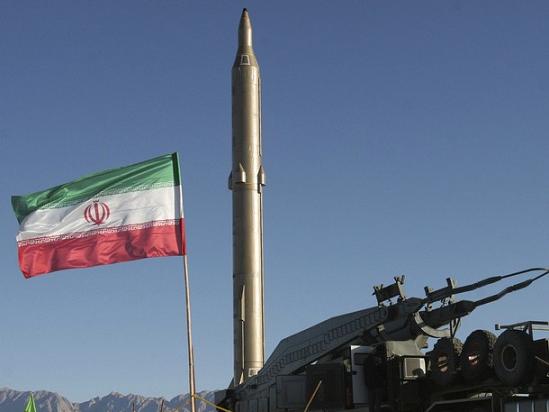 Parler
Parler Gab
Gab
Israel, U.S. know Iran will retaliate
Both Israel and the U.S. are working diligently on both military and diplomatic fronts, not necessarily to prevent retaliation but rather to mitigate its impact and minimize casualties. Despite Iran's desire to avoid a direct conflict with the U.S., it possesses significant strategic assets, including nuclear facilities, military industries, oil infrastructure and dams. Disruption of any of these could have severe economic consequences for Iran. Both American and Israeli forces have bolstered their surveillance and interception capabilities to detect and neutralize potential threats originating from Iran or its proxies. This includes advanced early detection systems deployed across the Gulf region. The U.S. has also announced restrictions on personal travel for its employees and their families in Israel, citing the heightened tensions with Iran. In a security alert posted on its website, the U.S. embassy in Jerusalem limited the movement of embassy staff and family to Jerusalem and the Tel Aviv and Beersheba metropolitan areas until further notice. Transit between these designated areas for personal travel is allowed. These measures align with the U.S. government's policy of providing security updates and guidance to American citizens residing in or traveling to countries where security situations warrant caution. Asked about this security alert, State Department spokesperson Matthew Miller pointed to Iranian threats against Israel as the main cause. "We conduct ongoing assessments all the time about the situation on the ground," said Miller during a press briefing. "I'm not going to speak to the specific assessment that led to us to restrict our employees' and family members' personal travel, but clearly we are monitoring the threat environment in the Middle East and specifically in Israel." Watch this clip from Fox News discussing the possibility of Iranian retaliation against the airstrikes on the embassy in Damascus. This video is from the NewsClips channel on Brighteon.com.More related stories:
Israel to destroy Iran's NUCLEAR facilities if Tehran follows through on retaliation threats. We are just one step away from an apocalyptic war in the Middle East. Israel attacks Iranian embassy in Syria to provoke Iran, rope U.S. into WWIII. Sources include: Reuters.com WSJ.com YNetNews.com Reuters.com Brighteon.comBiden-backed Palestinian Authority giving payouts for attacks against Israelis
By Richard Brown // Share
Kremlin: Ukraine deliberately targeting JOURNALISTS reporting from the front lines
By Ramon Tomey // Share
Bird flu detected in CATTLE herds in North Carolina and South Dakota
By Olivia Cook // Share
The whore media, like “our” government, always misleads
By News Editors // Share
Iran mocks Israel’s weak attempt at an attack: “Like toys, not drones”
By Ethan Huff // Share
Governments continue to obscure COVID-19 vaccine data amid rising concerns over excess deaths
By patricklewis // Share
Tech giant Microsoft backs EXTINCTION with its support of carbon capture programs
By ramontomeydw // Share
Germany to resume arms exports to Israel despite repeated ceasefire violations
By isabelle // Share










